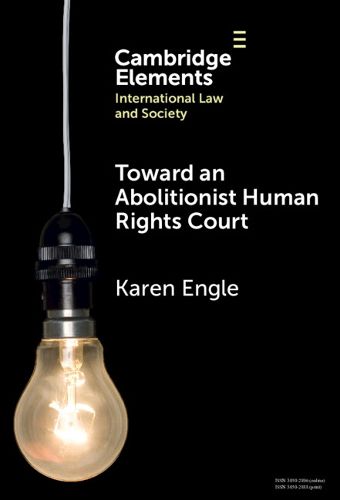Readings Newsletter
Become a Readings Member to make your shopping experience even easier.
Sign in or sign up for free!
You’re not far away from qualifying for FREE standard shipping within Australia
You’ve qualified for FREE standard shipping within Australia
The cart is loading…






Contemporary international human rights law increasingly obligates states to heighten their criminalization of certain human rights violations, including gendered, racialized, and homophobic violence. This Element uses prison and police abolitionist thought to challenge this trend. It focuses on the European Court of Human Rights (ECtHR), arguing that the Court's reliance on punishment and policing threatens to undo earlier European approaches to criminal law and human rights that resonate with abolitionist thought. It also contends that the criminalization approach provides the Court with an alibi for not recognizing or attending to the deeply structural racialized, colonial, sexual, gendered, and homophobic violence in Europe, particularly but not only against Roma communities and Black and Muslim migrants. Encouraging human rights advocates and judges to take seriously prison and police abolition in Europe and elsewhere, the Element calls for the ECtHR to pave the way for an abolitionist-oriented turn among human rights courts.
$9.00 standard shipping within Australia
FREE standard shipping within Australia for orders over $100.00
Express & International shipping calculated at checkout
Contemporary international human rights law increasingly obligates states to heighten their criminalization of certain human rights violations, including gendered, racialized, and homophobic violence. This Element uses prison and police abolitionist thought to challenge this trend. It focuses on the European Court of Human Rights (ECtHR), arguing that the Court's reliance on punishment and policing threatens to undo earlier European approaches to criminal law and human rights that resonate with abolitionist thought. It also contends that the criminalization approach provides the Court with an alibi for not recognizing or attending to the deeply structural racialized, colonial, sexual, gendered, and homophobic violence in Europe, particularly but not only against Roma communities and Black and Muslim migrants. Encouraging human rights advocates and judges to take seriously prison and police abolition in Europe and elsewhere, the Element calls for the ECtHR to pave the way for an abolitionist-oriented turn among human rights courts.